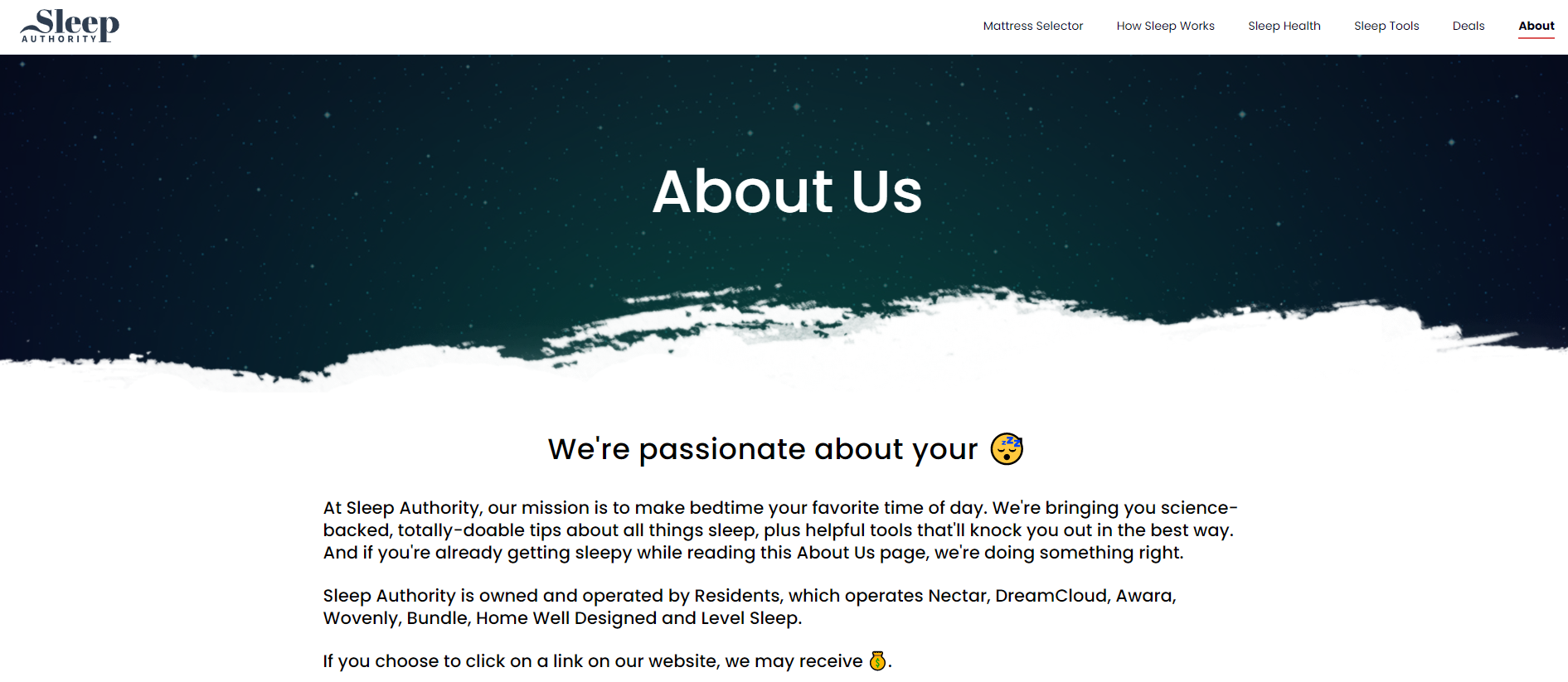How important is a website’s About page when a court is analyzing claims for false advertising and deceptive practices under the Lanham Act? An order from the U.S. District Court for the Southern District of New York in the case of Casper Sleep, Inc. v. Nectar Brand LLC, et al. provides an answer to the question.
The Plaintiff and the Defendants are direct competitors in the online mattress industry. The Plaintiff was primarily concerned that the Defendants were using a website to push brand-favorable content and steer online users to their other websites without clearly noting that the promotional website was, in effect, Defendants’ alter-ego.
The Defendants moved to dismiss the Plaintiff’s Second Amended Complaint, in part, because their website — Sleep Authority — merely provides opinions and makes adequate disclosures of their control over the website. The About page of the website was key to the court’s decision on the matter.

The Court noted that the Second Amended Complaint actually pleads that the About page discloses Defendants’ ownership (which it clearly does based on the screenshot embedded above). Furthermore, the Court highlighted that all of the social media posts that Plaintiff claims to be misleading link back to the Sleep Authority website.
The Court cited to another case initiated by the Plaintiff — Casper Sleep, Inc. v. Mitcham, 204 F. Supp. 3d 632, 639 (S.D.N.T. 2016) — to support its position that the About page cures any potential that a consumer could be misled as to the source of opinions on the website. In that case, the court noted that the defendant’s “disclosure that he is an ‘affiliate for many different companies’ is perfectly accurate” and it “is implausible that [the defendant’s] readers would infer from an admission of pecuniary interest in some but not all mattress brands that [the defendant] is, in fact, entirely unbiased. To the extent plaintiff takes issue with defendants’ claim of ‘brand-agnosticism’ and ‘retailer agnosticism,’ those statements are too subjective and opinion-laden to support a Lanham Act claim.”
Interestingly, the Court did not care that the About page was detached from the alleged misrepresentations at issue. Instead, the Court stated that “an accessible disclosure on that website addressing ownership is sufficient.”

